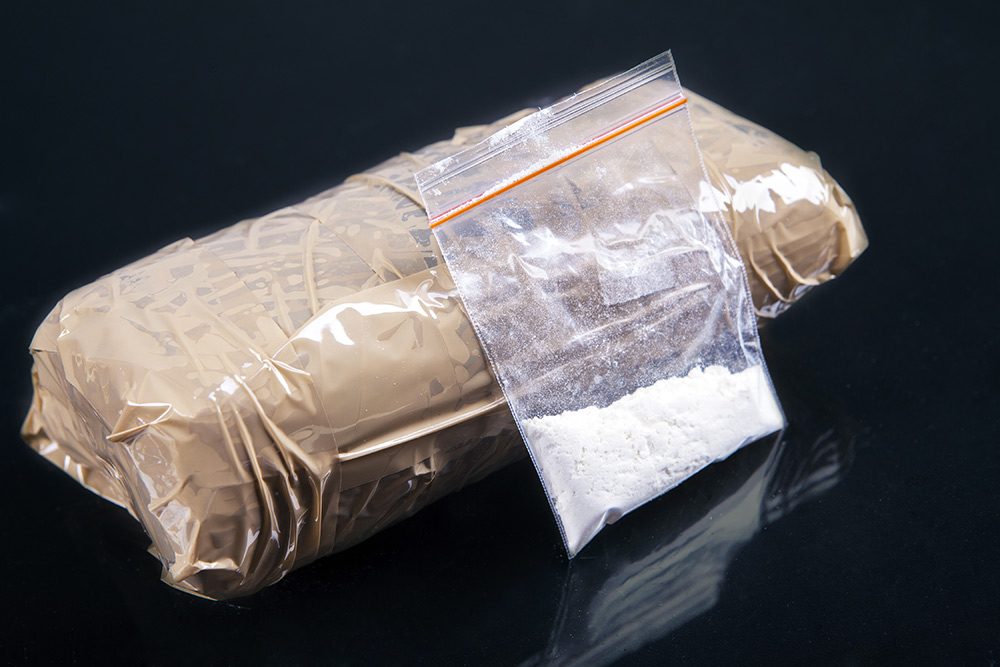How Long Does Heroin Stay In Your System?

How Long Does Heroin Stay in Your System?
Heroin is a highly addictive drug produced from morphine, a natural substance extracted from the seed pods of opium poppy plants. Although heroin has no approved medical purpose, it is considered to be one of the world’s most addictive drugs. Heroin enters the bloodstream quickly and is metabolized fairly rapidly. However, the length of time the drug stays in the system depends on a number of factors.
A Brief History of Heroin
Initially created to be a safe and non-addictive alternative to morphine, heroin was marketed as a pain reliever and cough suppressant beginning in the later years of the nineteenth century.
The drug quickly found a following and within months, Bayer, a German pharmaceutical company, was exporting the drug to countries around the world. It wasn’t long, however, that scientists realized that the supposed wonder drug rapidly metabolizes to morphine in the human body.
In spite of rapidly growing concerns about addiction, heroin remained unregulated until 1920, when Congress established the Dangerous Drug Act, which turned addiction into a punishable offense. But by then hundreds of thousands of Americans were already in the grip of addiction. Heroin eventually became less of a public health epidemic over time because of the legal penalties and social stigma attached to its use. However, it never went away entirely, and resurfaced with a vengeance in the past several decades.
Historically, Southeast Asia’s “Golden Triangle – an area in the border regions of Laos, Thailand and Burma -- was the world’s largest producer of opium. However, WhiteHouse.com notes that in recent years, production in that area has declined, while opium production in Afghanistan has increased, making Southwest Asia now the primary source of opium in the world.
While heroin produced in Afghanistan is marketed primarily to Asia, Europe and the Middle East, Latin America has emerged as the primary supplier to the United States. The U.S Department of Justice Drug Enforcement Administration (DEA) notes that Mexico produces much of the black tar heroin used primarily west of the Mississippi, while white tar heroin, a brown, tan or whitish powder used in the Eastern United States, is produced predominantly in Colombia.
History of Drug Testing
Drug testing wasn’t common practice until the 1960s, when the U.S Department of Defense tested extensively to deal with problems created by marijuana and heroin abuse by American soldiers during the war in Vietnam. The government’s involvement during this time led to rapid advancements in drug testing technology.
Testing became even more sophisticated during the 1980s, following President Reagan’s Executive Order on drug-free workplaces. This is also about the time that the criminal justice system began to rely heavily on drug testing at a local, state and federal level.
Today, drug testing technology is used by justice system officials, drug and alcohol treatment centers, employers and even parents who suspect an offspring is using heroin or other substances.
While positive heroin drug tests may result in further treatment or legal sanctions, testing isn’t necessarily punitive. Often, drug testing can be constructive in nature, providing useful information about a person’s progress in treatment or serving as the impetus that drives addicts to seek much needed help for a substance abuse problem.
What are the Most Common Types of Drug Tests?
Drug testing remains a complex, ever-changing science. Although urine testing is most commonly used, other testing modalities include blood, hair and saliva.
Urine Tests
There are two primary types of urine tests – Instrument testing and non-instrument testing.
Instrument testing involves highly scientific analytical methods that confirm the presence and amount of the drug in the system. Samples are taken on-site and sent to a highly regulated, certified lab where tests are performed by lab techs and reviewed by a physician or scientist.
While the tests are extremely accurate and precise, urine samples are easily adulterated with water, household products, or substitutions of another person’s urine. For this reason, chain of custody is critical, beginning with observation when the urine sample is provided, and proper storage and transport of samples.
Non-instrument testing involves a device such as a dip-strip or cup to analyze a sample immediately, at the time of collection. This form of testing, which includes commercially available drug tests kits, have become more sophisticated and are helpful if used correctly.
However, although the information is relatively accurate, results are not as involved or comprehensive as instrumental testing. Because results can be misleading and there is a potential for false positives, a positive test should always be followed with confirmation by instrument testing.
Results of urine testing – In most cases, heroin is no longer present in the urine after two or three days. However, heavy or chronic users may test positive as long as seven days.
Blood Testing
Although blood tests provide useful information, this method is not as accurate as urine testing and may be unreliable because heroin can exit the bloodstream relatively quickly.
Blood tests must be performed by trained medical professionals. Because they are highly invasive and pose a risk of infection, blood tests aren’t used as often as other techniques. However, blood testing technology is advancing rapidly. In 2014, Purdue University News reported on a new extraction technique that makes it possible to detect the presence of drugs very quickly, with a single drop of blood.
Results of blood testing – Heroin generally leaves the bloodstream after two hours, so tests after that time are undependable and may be inaccurate. Blood testing is most effective when a person is under the influence at the time of the test.
Hair Sample Testing
Use of hair samples to detect the presence of heroin and other substances in the system has become more common in recent years. Hair sampling is non-invasive, and heroin can be detected even after a considerable amount of time has lapsed.
However, there are certain unanswered questions. For example, dark hair absorbs drugs more readily than blonde hair, thus presenting a potential for racial bias. Additionally, there are no uniform standards to determine whether substances found in hair are due to drug use, or as a result of contamination by external means. Because drugs don’t show up in hair for three to five days after ingestion, hair testing isn’t a viable measurement for short-term drug use.
SAMHSA (Substance Abuse and Mental Health Services Administration) notes that several states prohibit use of hair for drug testing in the workplace, primarily because of these types of concerns about accuracy.
Results of hair testing – Heroin can be detected in the hair for as long as three months after last use.
Saliva Testing
Saliva testing is noninvasive and samples are easily obtained by swabbing the inside of the cheek. University of Arizona College of Medicine Tucson reports that the popularity of saliva testing (oral fluid testing), has grown considerably in recent years, primarily due to ease of use, and because adulteration or substitution of samples is extremely difficult.
However, there is concern that testing may be undependable because saliva can be contaminated by smoking or use of various other substances.
Results of saliva testing – The testing window is short, as heroin can usually be detected for only 10 to 21 hours. Results vary widely; users may show positive as long as 48 hours, while others may test negative after only five hours.
Factors that Affect How Long Heroin Remains in the Body
It’s impossible to predict with 100 percent certainty how long heroin remains in the body. The answer is influenced by a number of factors, which are different for each individual.
Amount used – The more heroin is used, the longer it remains in the system.
Frequency of use – Occasional users are usually able to metabolize heroin relatively quickly, while frequent or long-term users who have developed a tolerance to the drug are more likely to have accumulated heroin in the body’s fatty tissues. In this case, the drug remains in the system much longer.
Potency – High quality heroin is more potent and even a small amount tends to remain in the body longer than low-quality heroin. However, this isn’t a hard and fast rule because low-quality heroin is often cut with powdered milk, sugar, cornstarch or other substances that can add an element of unpredictability to the length of time the substance remains in the system.
Age – Younger people tend to metabolize heroin faster than older users, primarily because younger people are typically in better physical condition.
Overall health – People in good overall health are able to break down heroin in the system more efficiently. For example, individuals with healthy kidneys and liver are able to metabolize the substance more quickly than a person with diminished organ function.
Diet – Heroin users who eat a healthy diet and drink enough water to remain well-hydrated may process the drug more effectively.
Physical activity – Heroin users who exercise regularly may have more efficient metabolism than users who are sedentary.
Use of other substances – Use of other substances, including various prescription medications, may either speed or delay metabolism, thus altering the time the drug remains in the system.
No Hard and Fast Answers
Heroin isn’t a particularly long-lasting drug, and the time that heroin remains active in the human body is relatively short. However, even though any physical or psychological effects might be long gone, residual traces of heroin may be detected through certain tests as described above. Therefore, as covered in detail earlier, there are no hard and fast answers, and detection time varies widely depending on the type of drug testing technology, drug usage patterns, metabolism and other factors.
Heroin Addiction Treatment
Heroin is one of the most addictive drugs known to man, so it is highly suggested that a heroin addict receive professional heroin addiction treatment. Specific drugs require different approaches to treatment, and our addiction experts know how each drug impacts the brain and can design an appropriate treatment regimen specific to the needs of each client.
The Anaheim Lighthouse can help with recovery from heroin addiction through our Residential Detox Program, our Residential Treatment Facility, Partial Hospitalization Program, and Intensive Outpatient Program. Contact us today for information about treatment for heroin addiction for you or your loved one.
















